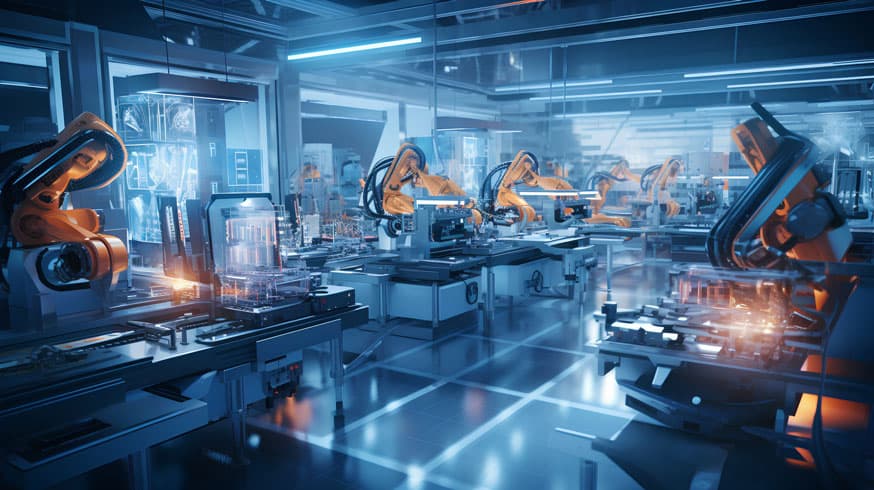Harnessing the Power of Data in the Industrial Age
The industrial landscape is undergoing a radical transformation, driven by the proliferation of data and the rise of powerful technologies like machine learning (ML). This article delves into how Litmus Edge, a leading industrial data platform, leverages ML to empower organizations to make smarter decisions and optimize operations.
Machine Learning: The Game Changer for Industry 4.0
Machine learning is transforming Industry 4.0 by automating predictions and improving how decisions are made. This technology analyzes huge amounts of data from industrial sensors and many manufacturing devices in real time.
Introducing machine learning into industrial environments is a big step toward operations that are smarter and more efficient.
Predictive maintenance:
Anticipate equipment failures before they occur, minimizing downtime and costs.
Streamlined supply chain management:
Optimize logistics, reduce waste, and ensure efficient resource allocation.
Enhanced quality control:
Proactively identify defects and ensure product quality consistency.
Reduced inspection and monitoring costs:
Automate tasks and optimize resource utilization.
Energy use forecasting:
Optimize energy consumption and reduce operational costs.
Litmus Edge: Where Machine Learning is Operationalized at The Industrial Edge
Litmus Edge is a powerful platform where machine learning and analytics work together to support predictive maintenance and improve processes. By using machine learning tools available in Litmus Edge, industries can predict equipment failures before they happen and adjust their operations to achieve the best performance.
Every industrial domain has seen benefits from using machine learning with Litmus Edge, from cutting down on the main causes of production losses and related expenses to improving workforce productivity and speeding up overall production.
Advanced analytics functions in Litmus Edge, when combined with machine learning models, can help you delve deeper into your industrial data, unveiling opportunities for optimization that were previously hidden.
The real-world applications of these features make Litmus Edge an invaluable tool for industries aiming to lead in the digital age.
Here are five benefits of using advanced analytics functions and machine learning models in Litmus Edge:
General Process Improvement:
ML makes the whole production process more efficient by finding bottlenecks and improving how logistics and the supply chain are managed.
Quality Control:
ML improves the quality of machines and equipment, greatly reducing defects and making it possible to maintain predictive maintenance.
Robotics and Automation:
Data gathered from smart robots, enhanced by machine learning, enables them to perform complex tasks with human guidance, boosting productivity and safety in manufacturing environments.
Security Enhancements:
Using advanced machine learning algorithms in Litmus Edge, you can closely monitor and control access within industrial IoT networks. This makes sure that only approved devices and users can connect with essential systems, increasing security against cyber threats.
Product Development:
ML helps in analyzing and visualizing large volumes of IoT data to find trends and insights. This allows manufacturers to innovate and improve products more effectively, meeting market demands accurately.
Looking Ahead: The Future of Machine Learning in Manufacturing
The integration of ML and analytics in Litmus Edge signifies a significant leap forward in industrial technology. The potential to transform how industries operate and utilize data is vast. Organizations eager to explore this world can access a wealth of resources and support from Litmus, including:
Not ready to delve into ML yet? Follow us on LinkedIn @Litmus to stay updated on how we are working closely with organizations similar to yours in expediting the path to intelligent data-driven operations using the power of Machine Learning.



